 Soy food intake in the amount consumed by Asian populations may have protective effects against breast cancer, according to researchers at the University of Southern California in Los Angeles. Continue reading Dietary soy and breast cancer risk
Soy food intake in the amount consumed by Asian populations may have protective effects against breast cancer, according to researchers at the University of Southern California in Los Angeles. Continue reading Dietary soy and breast cancer risk
Monthly Archives: March 2008
The risk of fadang in dementia
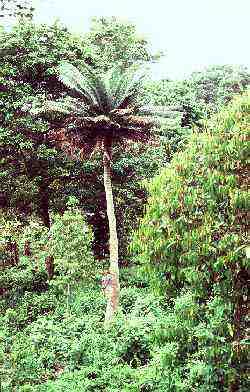 The natives of Guam use fadang — the seed of the false sago palm (a cycad) (photo) — as an ingredient in their traditional medicine and food.
The natives of Guam use fadang — the seed of the false sago palm (a cycad) (photo) — as an ingredient in their traditional medicine and food.
According to Marjorie Whiting, a nutritionist/anthropologist who lived with the native Guamanians, “Everybody knows that the fadang is toxic… The people go to a lot of trouble to process it in order to detoxify it.”
Now, we’re learning about the risk factors for toxicity they missed. Continue reading The risk of fadang in dementia
Zero trans fat is not the same as no trans fat
![]() Federal regulations allow food labels to say there are zero grams of trans fat as long as there’s less than a half-gram per serving, according to this AP story.
Federal regulations allow food labels to say there are zero grams of trans fat as long as there’s less than a half-gram per serving, according to this AP story.
“The problem is that often people eat a lot more than one serving,” says Dr. Dariush Mozaffarian of Harvard School of Public Health. Continue reading Zero trans fat is not the same as no trans fat
Comparing treatments for insomnia
 Drs. Kalyanakrishnan Ramakrishnan and Dewey Scheid from the University of Oklahoma Health Sciences Center have published a review of treatment options for sleeplessness.
Drs. Kalyanakrishnan Ramakrishnan and Dewey Scheid from the University of Oklahoma Health Sciences Center have published a review of treatment options for sleeplessness.
Melatonin, valerian, and several non-drug treatments are compared to benzodiazepines and non-benzodiazepine options. Continue reading Comparing treatments for insomnia
The need for vitamin D in people with epilepsy
![]() During the First North American Regional Epilepsy Congress, researchers from the University of Texas reported that men with epilepsy who take enzyme-inducing antiepileptic drugs (AEDs) have lower levels of vitamin D and calcium, plus higher parathyroid hormone (PTH) levels.
During the First North American Regional Epilepsy Congress, researchers from the University of Texas reported that men with epilepsy who take enzyme-inducing antiepileptic drugs (AEDs) have lower levels of vitamin D and calcium, plus higher parathyroid hormone (PTH) levels.
The AEDs involved included the following.
Continue reading The need for vitamin D in people with epilepsy
Mediterranean diet for Alzheimer’s disease?
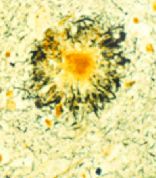
Now, the Mediterranean diet appears useful in people already diagnosed with Alzheimer’s disease. Continue reading Mediterranean diet for Alzheimer’s disease?
Is physical therapy cost-effective care for sciatica?
 Not when compared to general practitioners’ care alone, according to researchers from Erasmus Medical Center in Rotterdam, the Netherlands. Continue reading Is physical therapy cost-effective care for sciatica?
Not when compared to general practitioners’ care alone, according to researchers from Erasmus Medical Center in Rotterdam, the Netherlands. Continue reading Is physical therapy cost-effective care for sciatica?
Consumer alert: Blue Steel and Hero products
 In the ongoing game of catch me if you can, these products have been caught. Continue reading Consumer alert: Blue Steel and Hero products
In the ongoing game of catch me if you can, these products have been caught. Continue reading Consumer alert: Blue Steel and Hero products
Reconsidering the effect of folate on breast cancer risk
 A published (and widely circulated in the lay press) study by researchers at Lund University in Sweden reported that high folate intake by women 50 years and older was associated with a lower incidence of postmenopausal breast cancer.
A published (and widely circulated in the lay press) study by researchers at Lund University in Sweden reported that high folate intake by women 50 years and older was associated with a lower incidence of postmenopausal breast cancer.
Of greater interest is an editorial by Dr. Cornelia Ulrich from the Fred Hutchinson Cancer Research Center in Seattle, Washington. Continue reading Reconsidering the effect of folate on breast cancer risk
Can homeopathic products contain active substances not in homeopathic dilutions?
![]() Not according to the Spanish Agency for Medicines and Health Care Products.
Not according to the Spanish Agency for Medicines and Health Care Products.
L. Ramon Cuesta Laso and Mara Teresa Alfonso Galn reviewed Spanish and European Union legislation and other sources regarding this topic.
Their conclusion? Continue reading Can homeopathic products contain active substances not in homeopathic dilutions?
Stress-management for radical prostatectomy patients
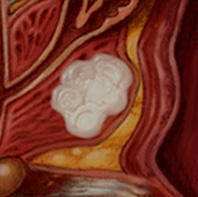
Peri-menopausal symptoms treated with pycnogenol
 This is apparently the first study of pycnogenol (French maritime pine bark extract) to treat peri-menopausal symptoms. Continue reading Peri-menopausal symptoms treated with pycnogenol
This is apparently the first study of pycnogenol (French maritime pine bark extract) to treat peri-menopausal symptoms. Continue reading Peri-menopausal symptoms treated with pycnogenol
Dietary supplements, allopathic, and homeopathic medicines
 An article published by John Borneman and Robert Field on the Hyland’s website (and here) provides insight to the regulatory differences between these drug categories in the US.
An article published by John Borneman and Robert Field on the Hyland’s website (and here) provides insight to the regulatory differences between these drug categories in the US.
It’s instructive to appreciate the similarities and differences. The authors believe the guidelines for homeopathic medicine could serves as a model for approval and postmarketing oversight of dietary supplements. Continue reading Dietary supplements, allopathic, and homeopathic medicines
Fewer calories or more exercise: Which is best for weight loss?
 A study in The Journal of Clinical Endocrinology & Metabolism reveals that dieting alone is as effective at reducing weigh and fat as a combination of diet and exercise — as long as the calories consumed and burned are equal.
A study in The Journal of Clinical Endocrinology & Metabolism reveals that dieting alone is as effective at reducing weigh and fat as a combination of diet and exercise — as long as the calories consumed and burned are equal.
There was one important difference, however.
Here are the details.
Continue reading Fewer calories or more exercise: Which is best for weight loss?
Will adopting a healthy lifestyle in middle age improve your health?
 The answer is yes — especially among people with high blood pressure, diabetes, or low socioeconomic status — according to researchers at the Medical University of South Carolina in Charleston. Continue reading Will adopting a healthy lifestyle in middle age improve your health?
The answer is yes — especially among people with high blood pressure, diabetes, or low socioeconomic status — according to researchers at the Medical University of South Carolina in Charleston. Continue reading Will adopting a healthy lifestyle in middle age improve your health?
Eat food, not nutrients
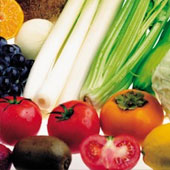 Michael Pollan, writing in The New York Times Magazine advises, “If you’re concerned about your health, you should probably avoid food products that make health claims. Why? Because a health claim on a food product is a good indication that it’s not really food, and food is what you want to eat.
Michael Pollan, writing in The New York Times Magazine advises, “If you’re concerned about your health, you should probably avoid food products that make health claims. Why? Because a health claim on a food product is a good indication that it’s not really food, and food is what you want to eat.
What’s this got to do with you?
Echinacea and the all too common cold
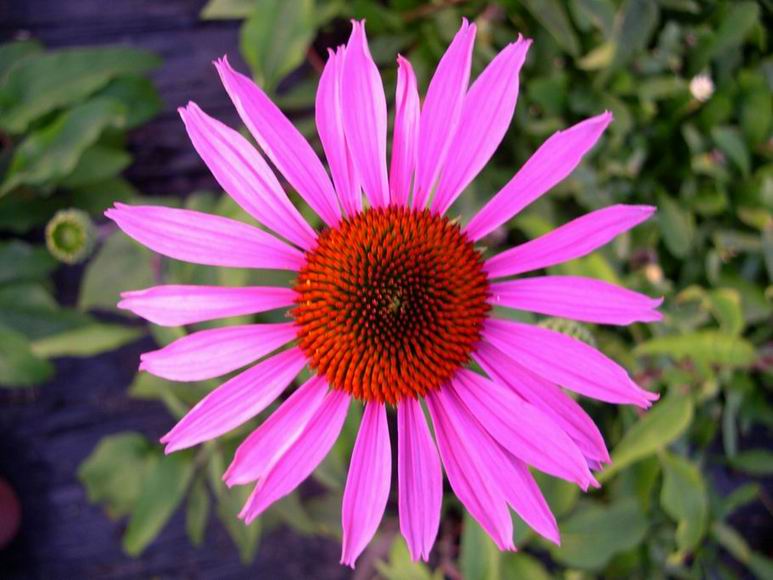
No evidence suggests echinacea can prevent the onset of the common cold or that it’s effective in children.
Mind-body interventions for chronic pain in older adults
 Not much evidence is available. But here’s what 2 researchers from the University of Pittsburgh in Pennsylvania discovered during their review of 20 published studies. Continue reading Mind-body interventions for chronic pain in older adults
Not much evidence is available. But here’s what 2 researchers from the University of Pittsburgh in Pennsylvania discovered during their review of 20 published studies. Continue reading Mind-body interventions for chronic pain in older adults
Music for pain and anxiety in children
 Researchers from the University of Alberta in Edmonton, Canada report, that “music is effective in reducing anxiety and pain in children undergoing medical and dental procedures.” Continue reading Music for pain and anxiety in children
Researchers from the University of Alberta in Edmonton, Canada report, that “music is effective in reducing anxiety and pain in children undergoing medical and dental procedures.” Continue reading Music for pain and anxiety in children
Cost effectiveness of OT in dementia
 Researchers at Radboud University Nijmegen Medical Centre in the Netherlands compared the cost effectiveness of community-based occupational therapy (OT) to usual care in older patients with dementia and their caregivers. Continue reading Cost effectiveness of OT in dementia
Researchers at Radboud University Nijmegen Medical Centre in the Netherlands compared the cost effectiveness of community-based occupational therapy (OT) to usual care in older patients with dementia and their caregivers. Continue reading Cost effectiveness of OT in dementia